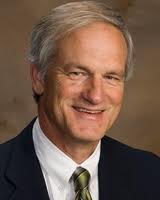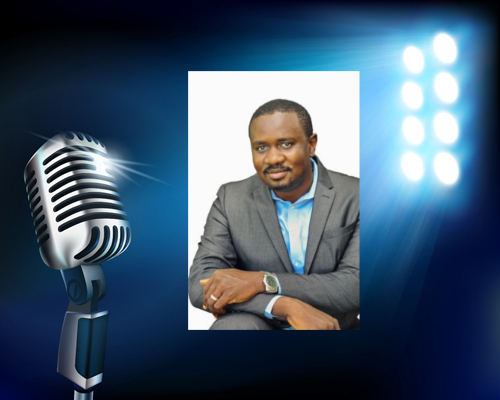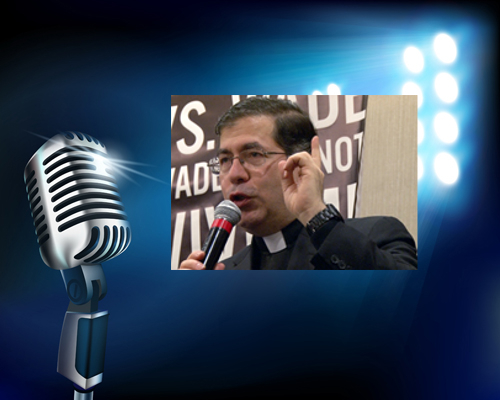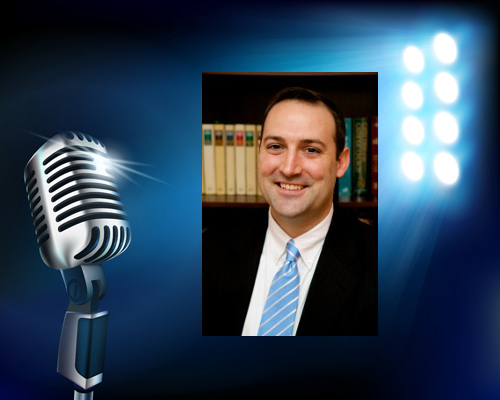 In my continuing series of author interviews it is a pleasure to present my interview with Kenneth Howell. Ken is author of the Early Christian Fathers series from The Coming Home Network. You can find my review of Vol. 1 Ignatius of Antioch and Polycarp of Smyrna here.
In my continuing series of author interviews it is a pleasure to present my interview with Kenneth Howell. Ken is author of the Early Christian Fathers series from The Coming Home Network. You can find my review of Vol. 1 Ignatius of Antioch and Polycarp of Smyrna here.
Q: First off a little history about yourself. You, like myself, are a convert to the Catholic Faith. Can you tell us a little about what brought you to the Catholic Church (or home as most converts refer to it as)?
A: My quest for the true Church of Jesus Christ involved many aspects but the most important was the Eucharist. When I realized that my Presbyterian (Reformed) view of the sacrament was not that of the ancient church, I sought to see which church today was closest to the beliefs of ancient Christians and concluded that the Roman Catholic Church best embodied the fullness of the faith. This fact implied the need for a valid priesthood and for a sign and instrument of Christian unity which I found in the Office of Peter.
Q: What drew you to study of the Early Christian Fathers?
A: I wanted to know what the earliest Christians after the New Testament was written believed. I reasoned that those living closest to the apostles were more likely to know what the apostolic faith was in comparison to someone living twenty centuries later. I came to see the truth of Blessed John Henry Newman’s statement, “To be deep in history is to cease to be Protestant.”
Q: Is there a particular Early Christian Father you would consider your favorite and why?
A: It’s hard to settle on just one but three stand out. St. Ignatius of Antioch and his seven letters give us a clear window on the early Christian faith right after the apostles. His view of unity of the church based on the Gospel, on the sacraments, and on episcopal authority was compelling. St. Justin Martyr, in the middle of the second century, gave us a description of the Mass as it was practiced in the early Church. His defense of the Christian faith was also important to me since he was a lay apologist and philosopher. Finally, St. Augustine was important because Reformed (Calvinist) Christians think of him as a proto-Calvinist. I came to see that Augustine’s theology is really Catholic, not Reformed.
Q: For those unfamiliar, the two volumes of the series you have written thus far are Vol. 1 Ignatius of Antioch and Polycarp of Smyrna and Vol. 2 Clement of Rome and the Didache. Of all the Early Christians why did you choose these to start?
A: Marcus Grodi and I settled on these four because they are the earliest writings of Christianity after the apostles. Outside the New Testament itself, they give us a unique picture of how Catholic the early Christian faith was. Anyone who takes these writings seriously must be led to ask questions about the Catholic Church.
Q: I have completed reading Vol. 1 and the essays on Ignatius and Polycarp were fantastic. How much research and time went into these essays?
A: The most proximate work took about three years. The most tedious part of the work was the translation itself. It’s like a scientist who plugs away in his laboratory before writing up the results. But these three years of research required years of previous knowledge of ancient Greek.
Q: For those of us interested in the Early Christians, can we expect more Volumes in the Early Christian Fathers series and who might we see in future volumes? Besides this series do you have any other books in the works you can tell us about?
A: The Early Christian Fathers series was commissioned by Marcus Grodi and the Coming Home Network. Marcus would have to say whether he wants to see the series continue. But I have been translating St. John Chrysostom’s homilies on the life of Christ and hope to bring those out in the not too distant future. If not in this series, perhaps another. After sixteen centuries, there are still writings of St. John Chrysostom which have never been translated into English.
I am also working on a multi-volume history of the Eucharist which I hope to finish before God calls me home. In the meantime, there are other smaller books I am doing. One is my journey to the Catholic Church and another has to do with Christian unity.
Q: This is a blog about books so here’s my signature closing question. What is currently on your bookshelf to read?
A: I read ancient Greek and Latin writers everyday. It’s a lifelong project. I am also reading Cardinal Kasper’s A Handbook of Spiritual Ecumenism which is very good about how to pursue Christian unity in a practical way. I enjoy some profound spiritual writers like Fr. Michael Casey O.C.S.O and anonymous Carthusians. But I am also rereading some of Tolkien’s works, and the Czech philosopher Erazim Kohak, as well as memorizing some American poets like Longfellow and Wordsworth.











